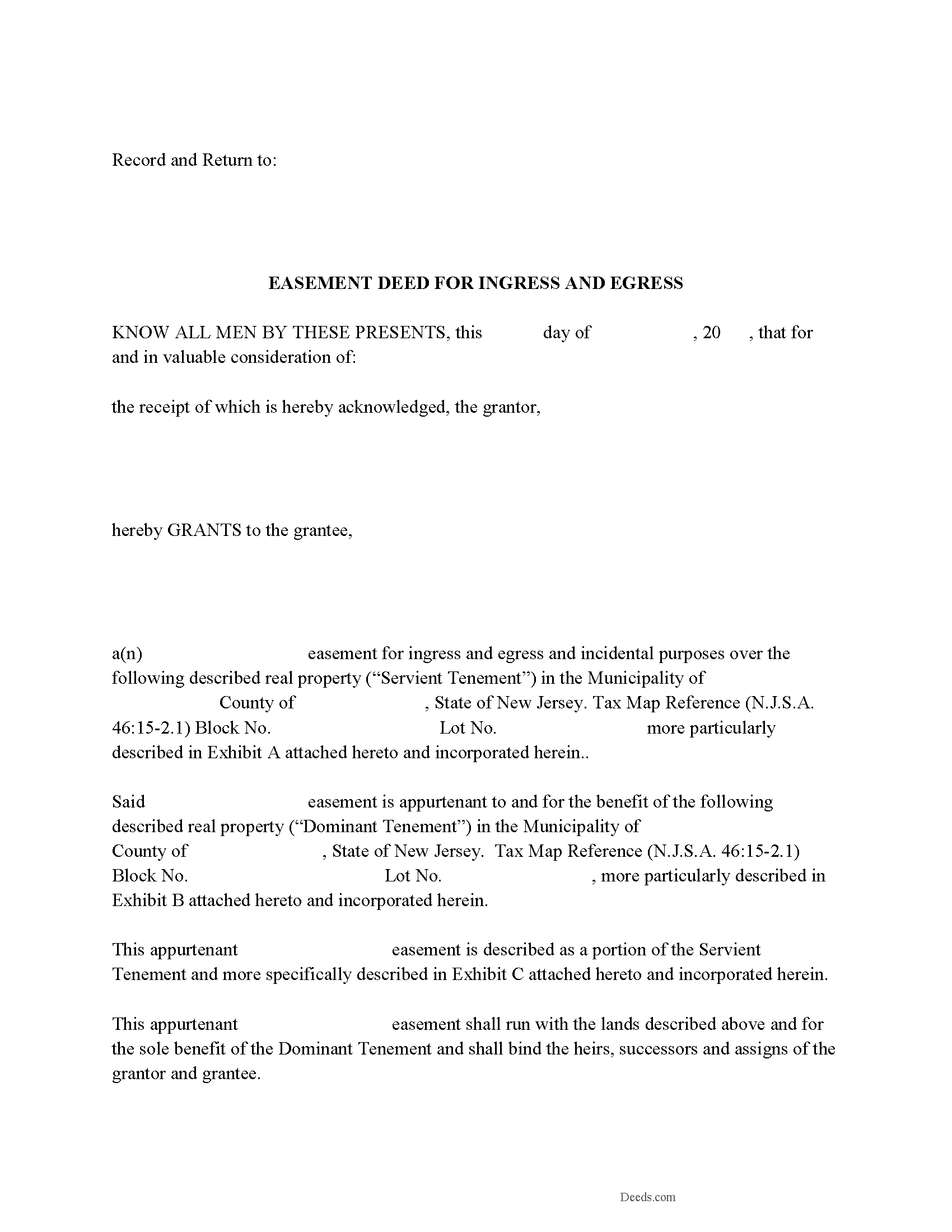New Jersey Easement Deed Forms

New Jersey Easement Deed Overview

How to Use This Form
- Select your county from the list on the left
- Download the county-specific form
- Fill in the required information
- Have the document notarized if required
- Record with your county recorder's office
Frequent easements in New Jersey include public utility easements, driveway easements, and easements for encroachments. An easement is the right to use another person's property for a specific purpose, and can be either affirmative or negative. Easements in this state are typically created by an express grant, which is often a formal agreement between the parties involved, which is then set forth in a recorded easement deed. The easement deed should specify the terms and duration of the easement. An easement obtained for the purpose of exposure of a solar energy device can be created in writing and will be subject to the same conveyancing and recording requirements as other easements (46:3-25).
In order to be eligible for recording, an easement deed should be signed by the grantor and acknowledged before an officer specified in 46:14-6.1 of the New Jersey Statutes. Deeds may be acknowledged in New Jersey or in another state. The officer taking the acknowledgment should sign a certificate stating such acknowledgment or proof, which will be recorded with the easement deed (46:14-2.1).
The act of recording an easement deed provides constructive notice of the contents. Any recorded deed affecting the title to real property, including easement deeds, are from the time of recording, notice to all subsequent purchasers, mortgagees, and judgment creditors of the execution of the recorded document and its contents (46:26A-12). An easement deed or other conveyance of an interest in real property in New Jersey will not be effective against subsequent judgment creditors without notice, or against subsequent bona fide purchasers and mortgagees for valuable consideration without notice and whose conveyance or mortgage is recorded, unless that conveyance is evidenced by a document that is recorded first (46:26A-12). Easement deeds must be recorded in the county where the property is located.
(New Jersey ED Package includes form, guidelines, and completed example)
Important: County-Specific Forms
Our easement deed forms are specifically formatted for each county in New Jersey.
After selecting your county, you'll receive forms that meet all local recording requirements, ensuring your documents will be accepted without delays or rejection fees.
How to Use This Form
- Select your county from the list above
- Download the county-specific form
- Fill in the required information
- Have the document notarized if required
- Record with your county recorder's office
Common Uses for Easement Deed
- Transfer property between family members
- Add or remove names from property titles
- Transfer property into or out of trusts
- Correct errors in previously recorded deeds
- Gift property to others